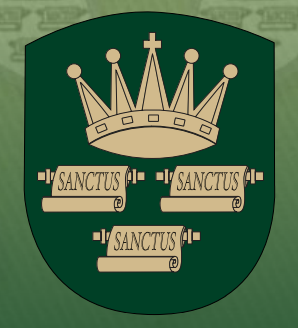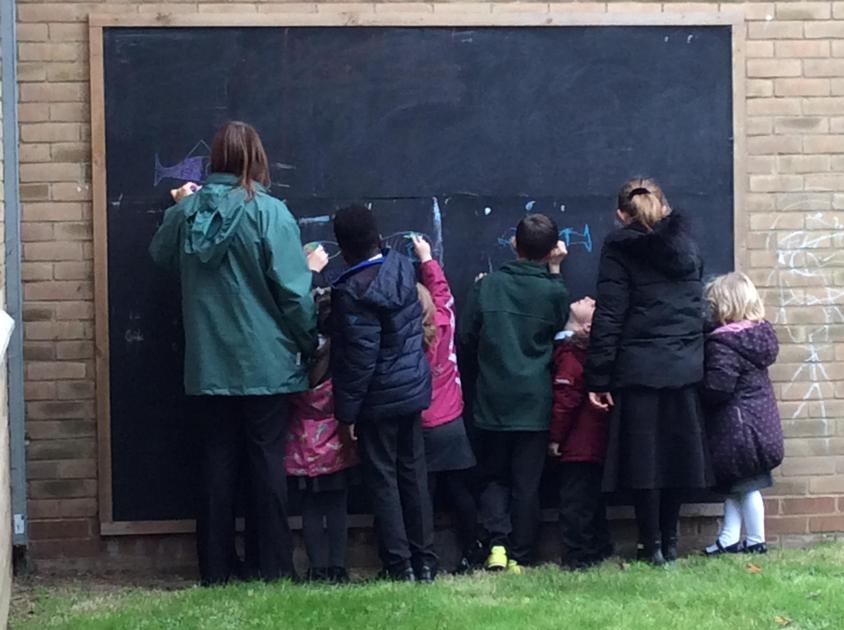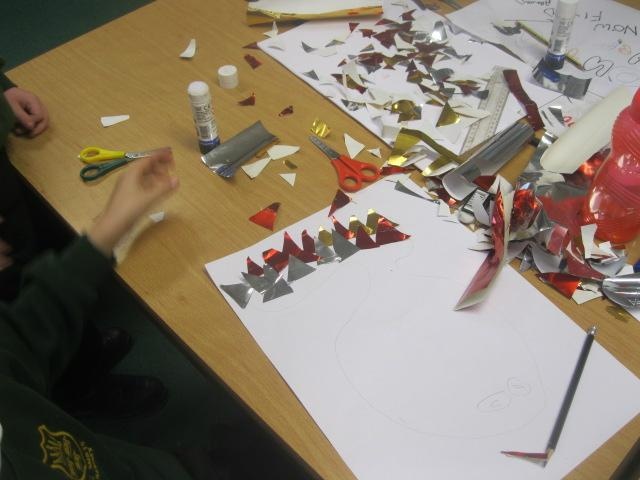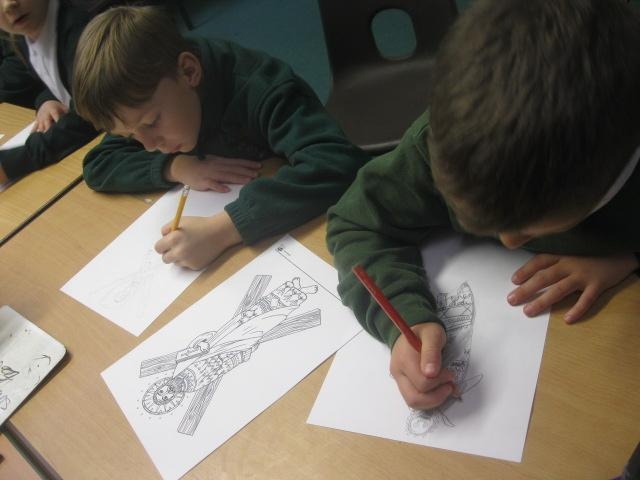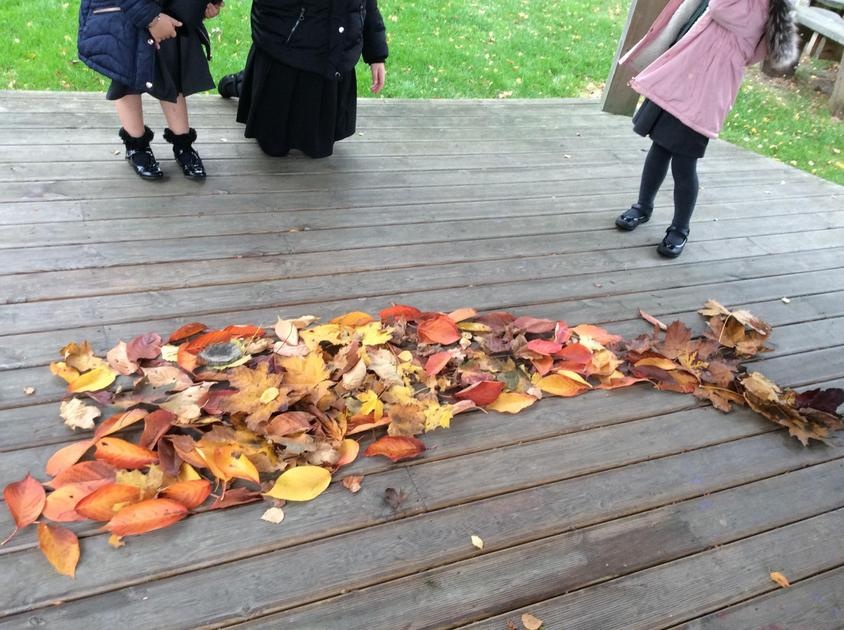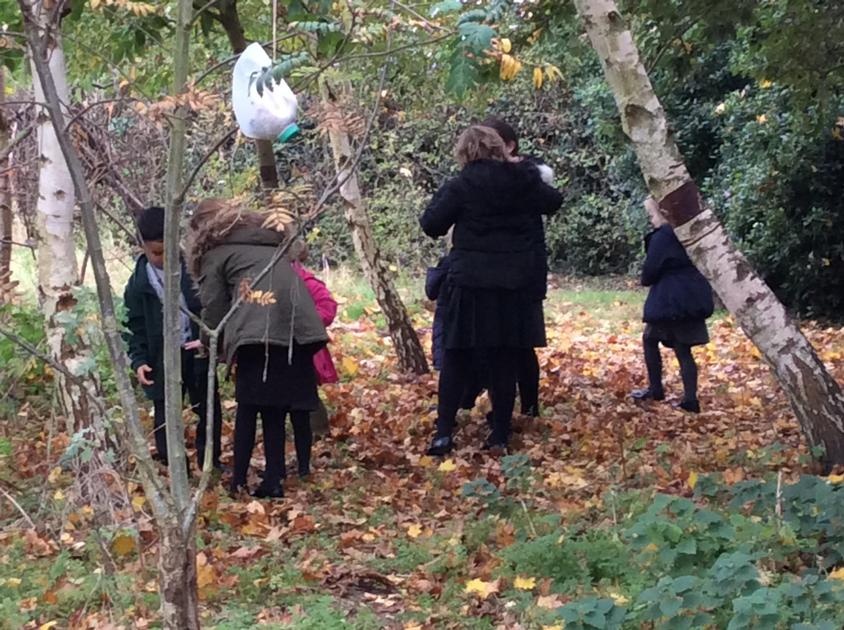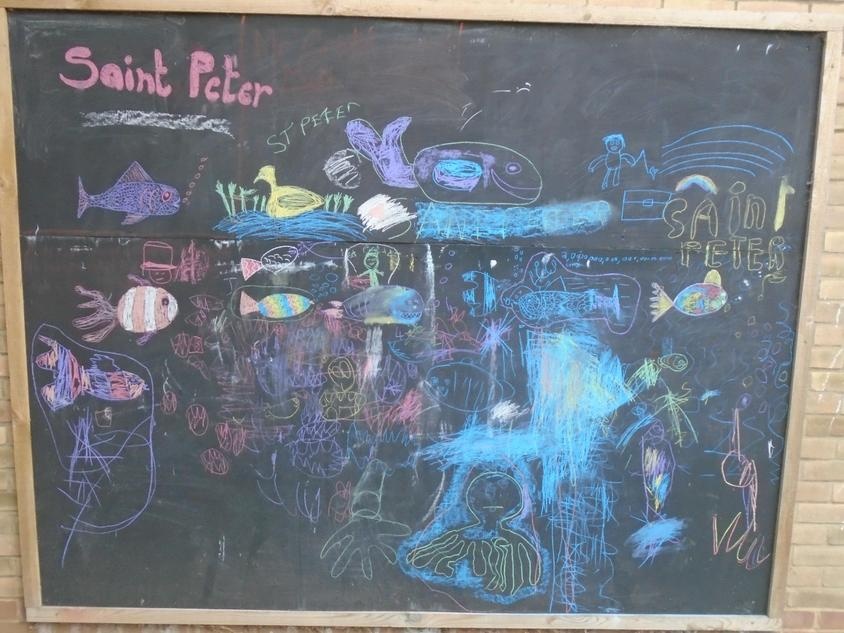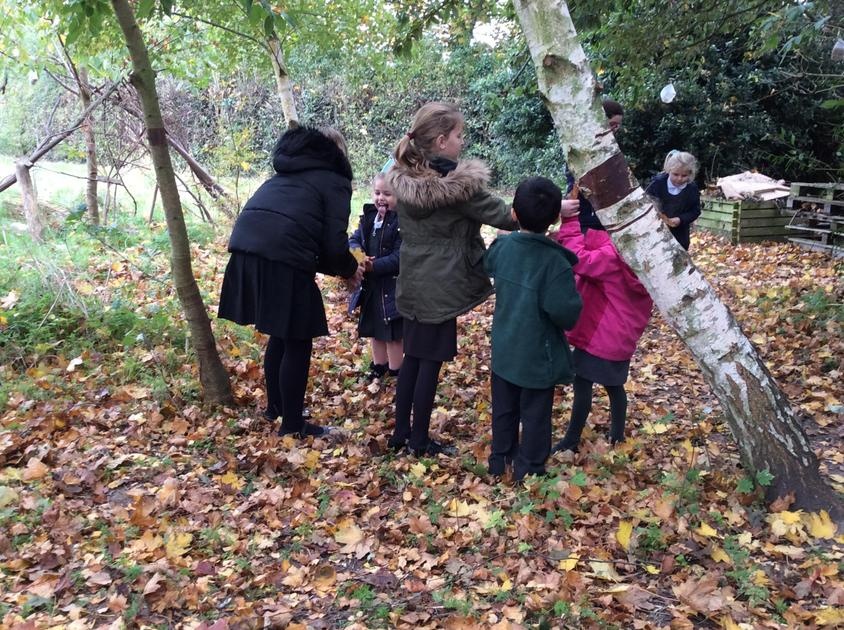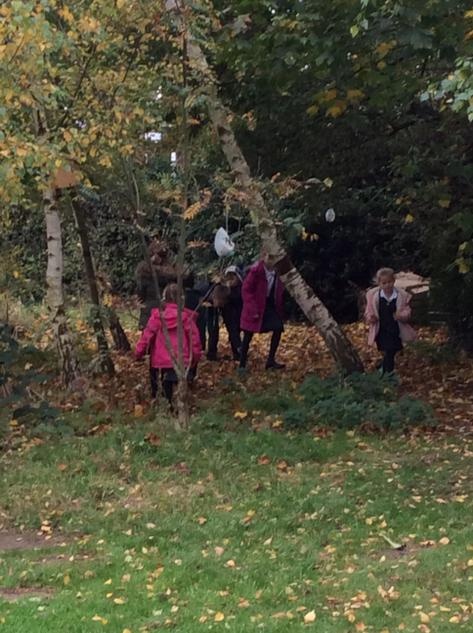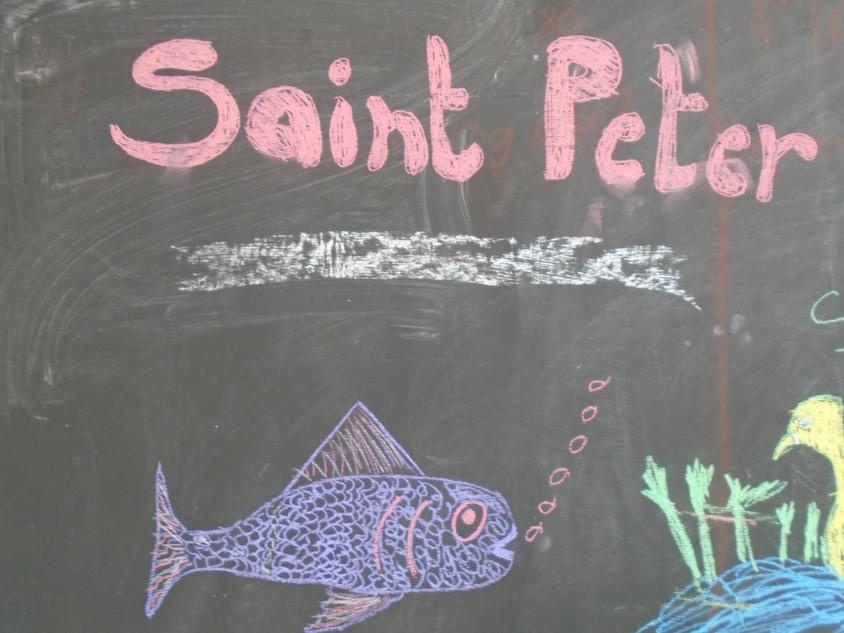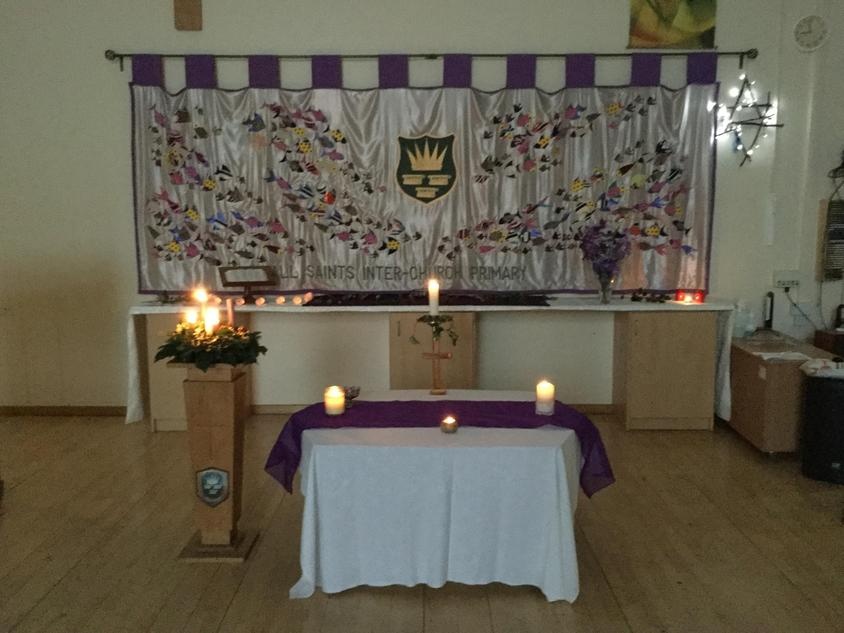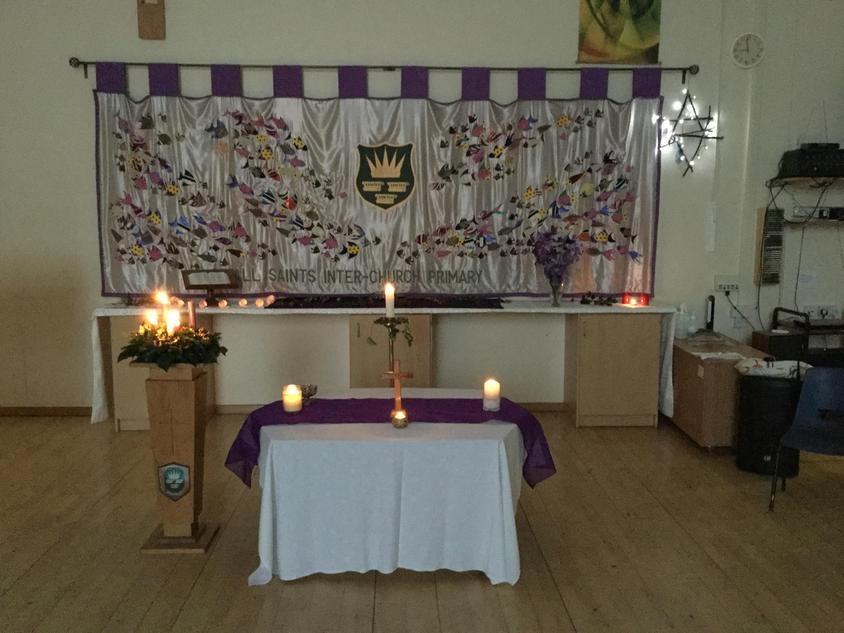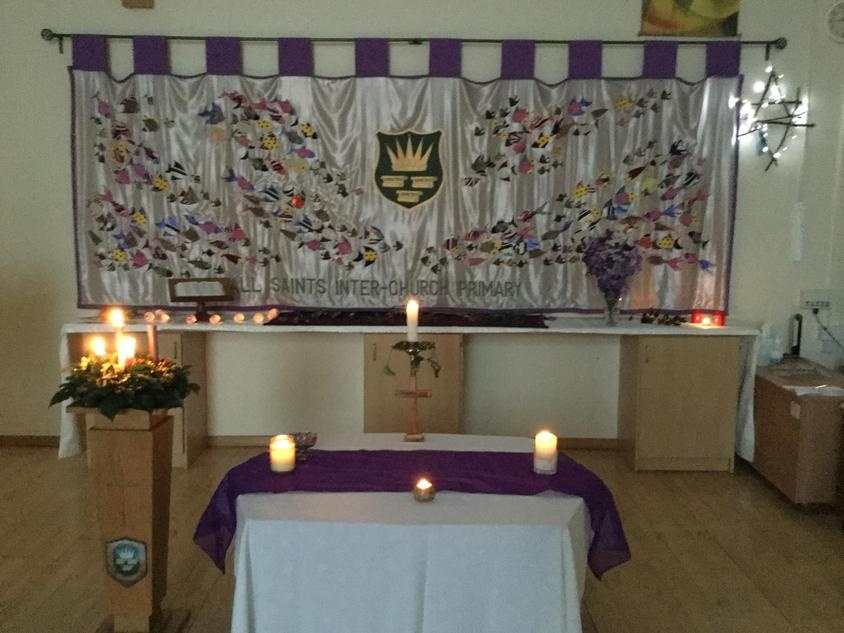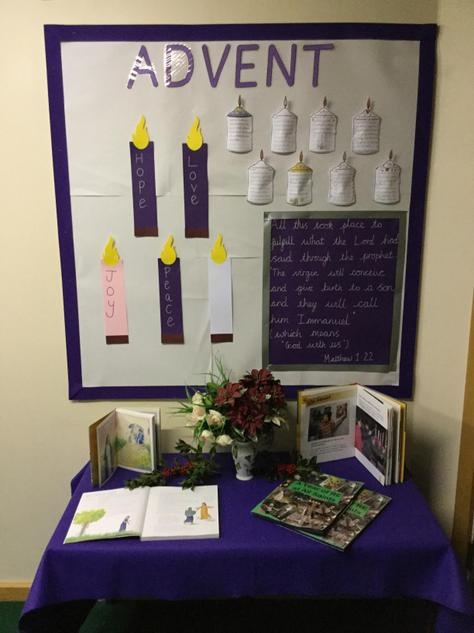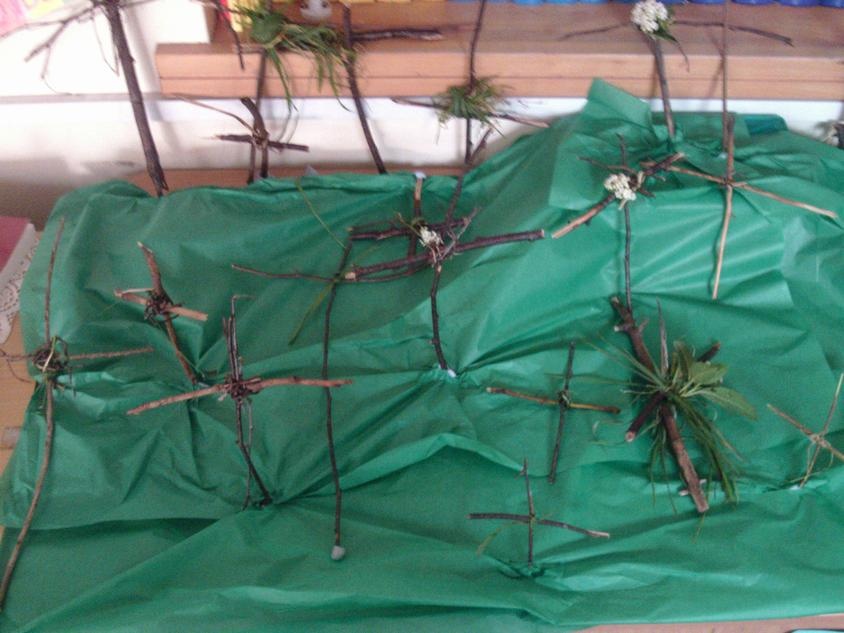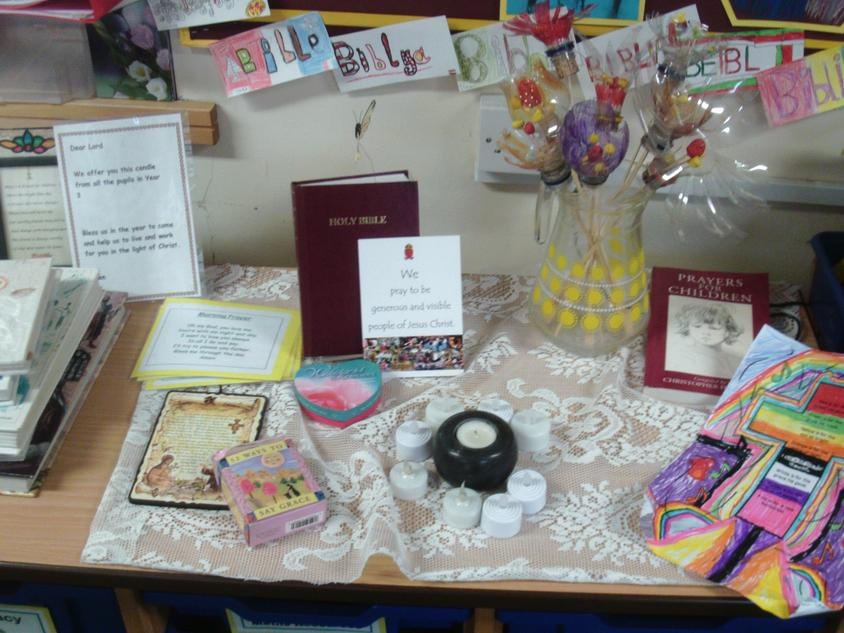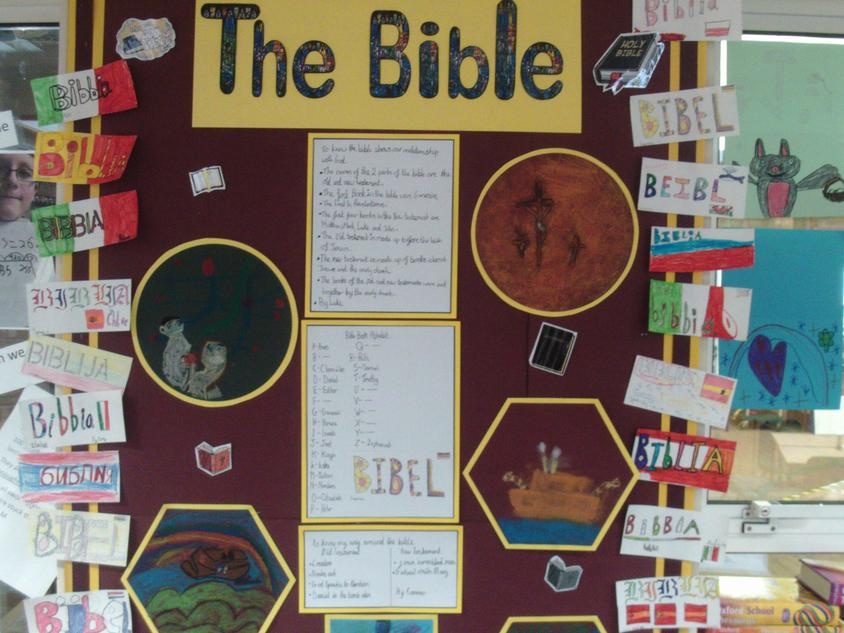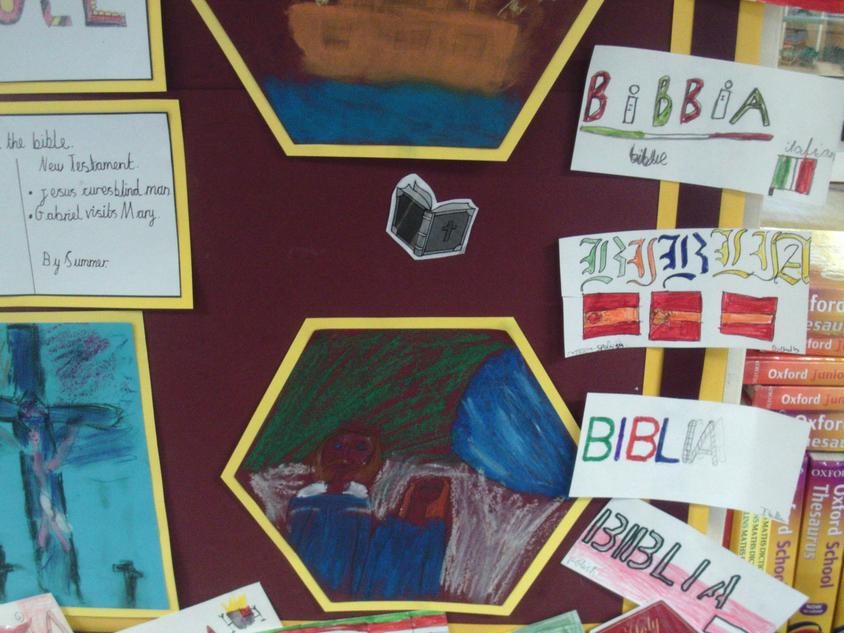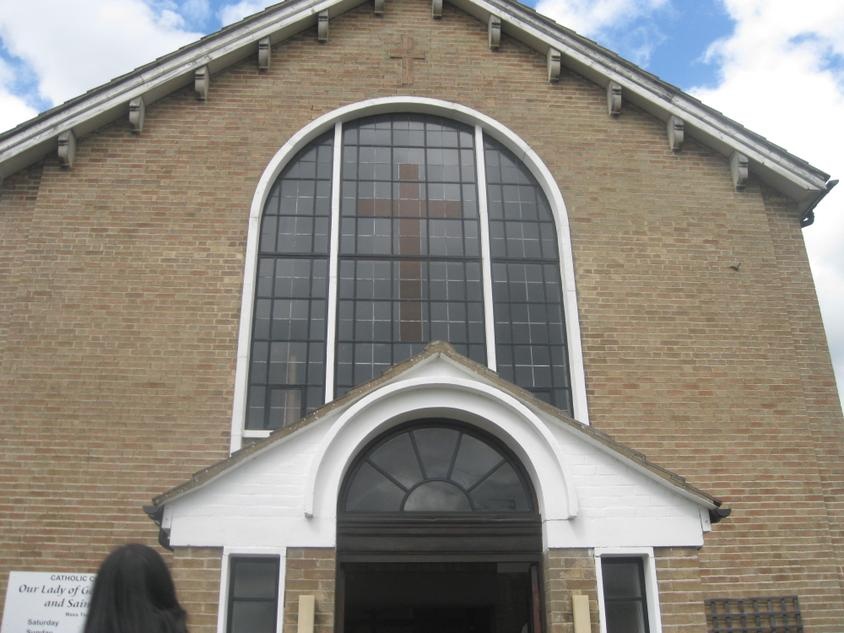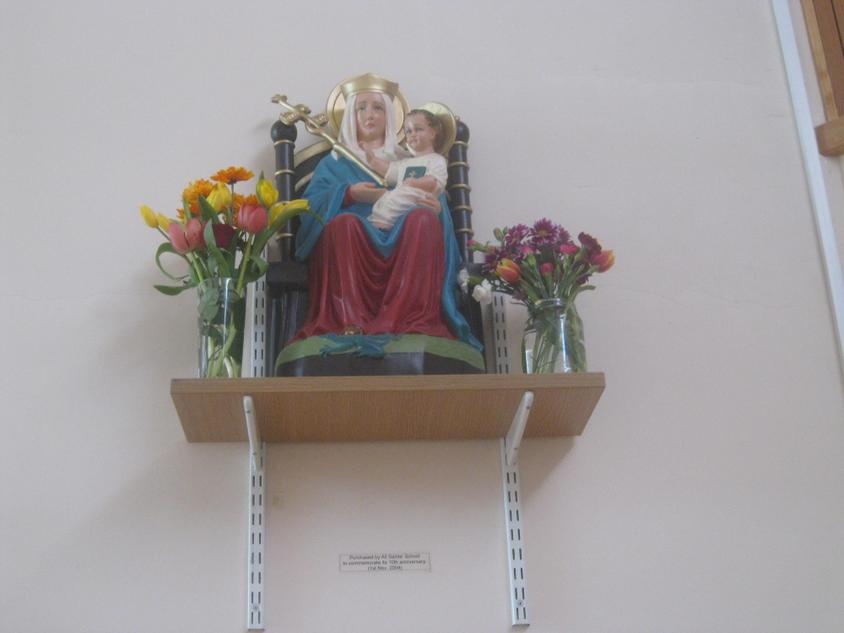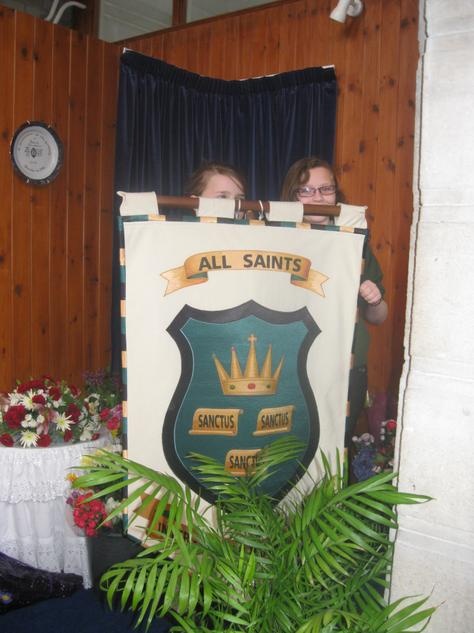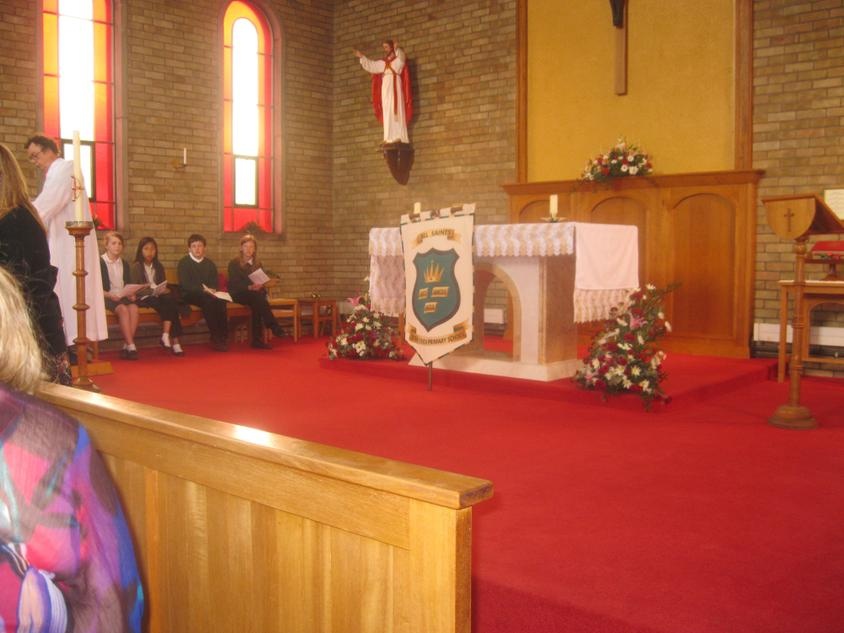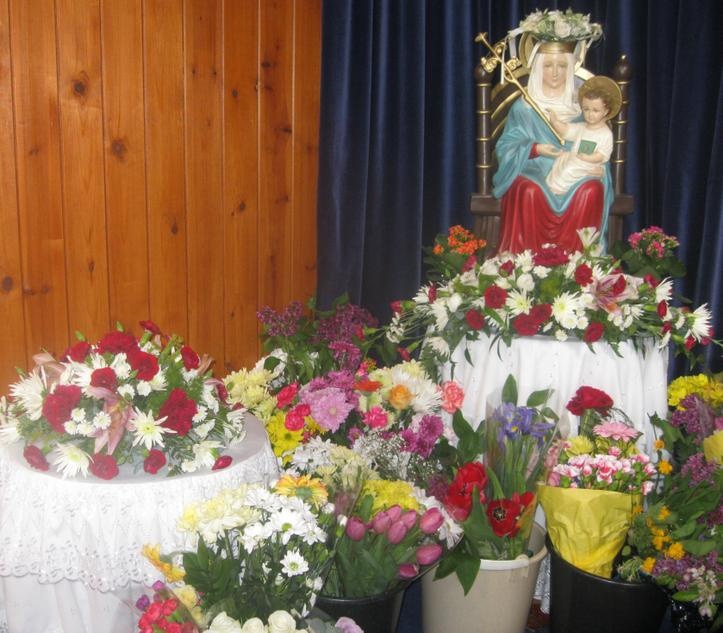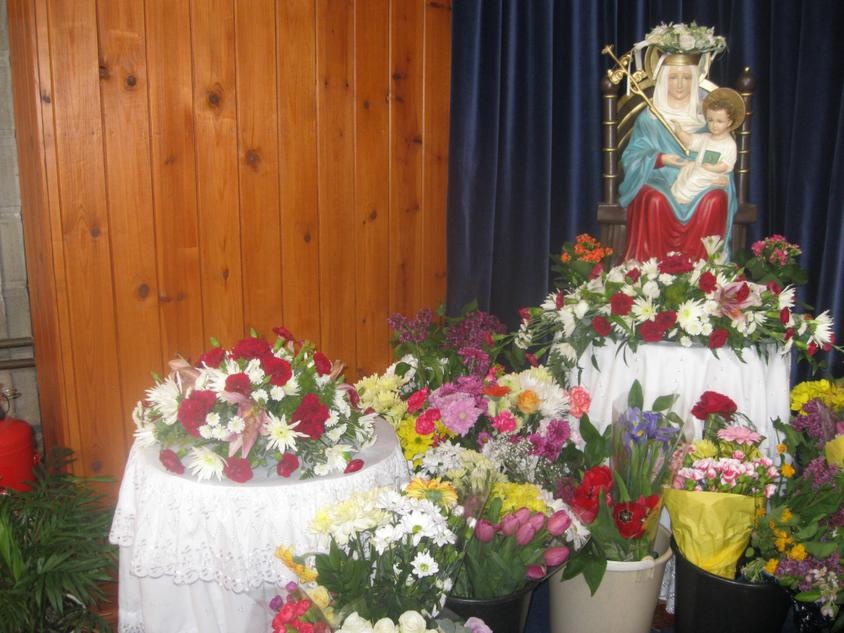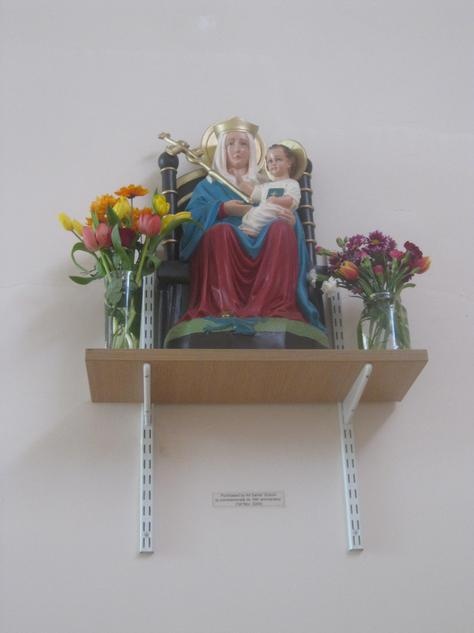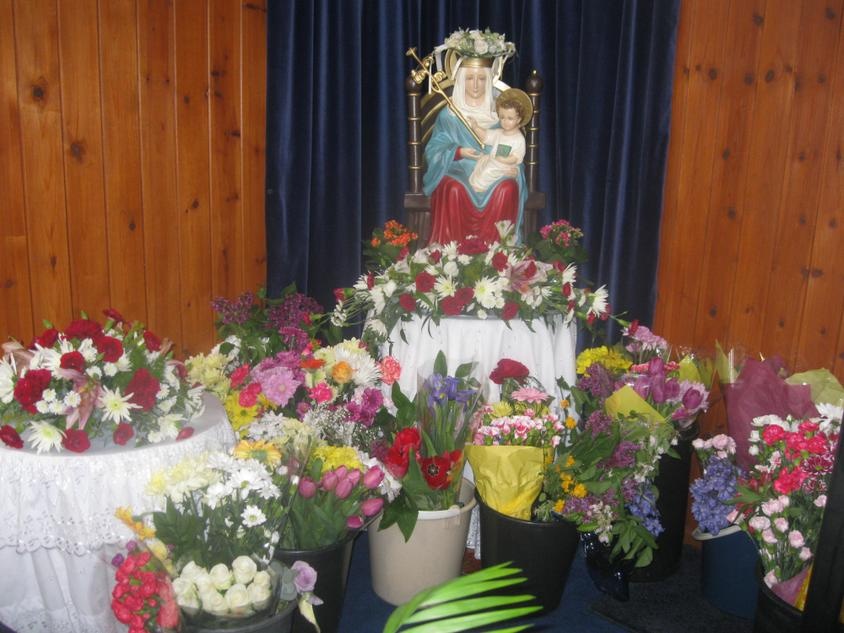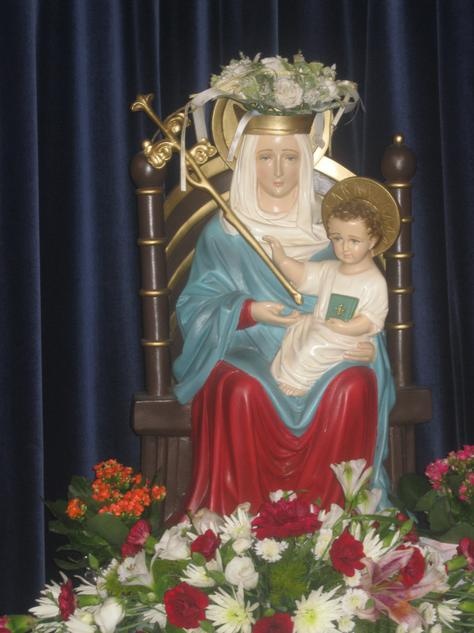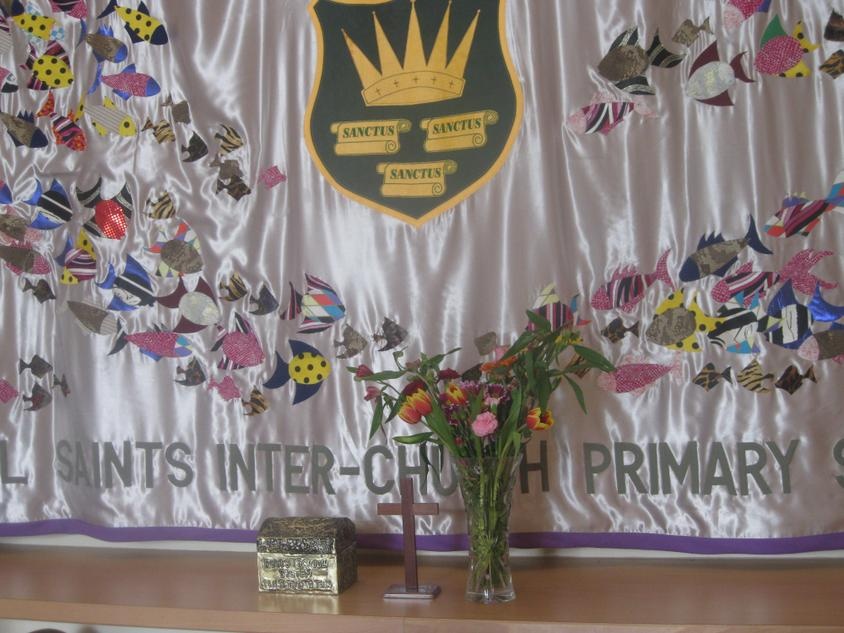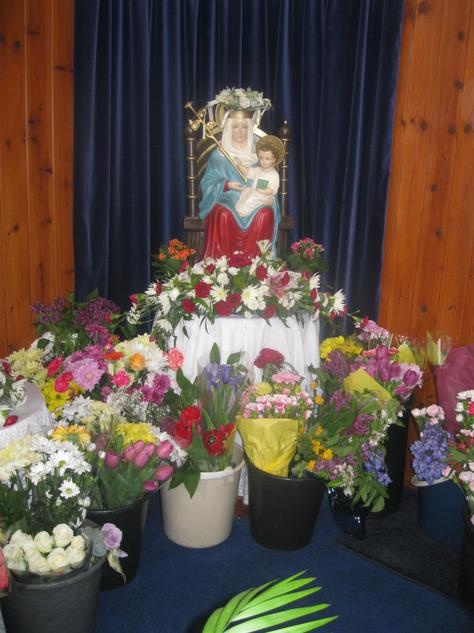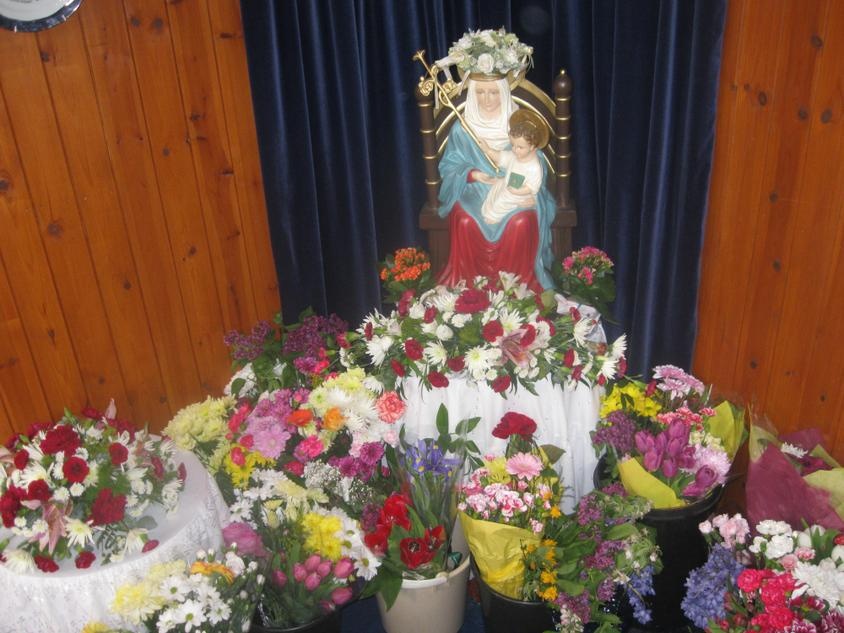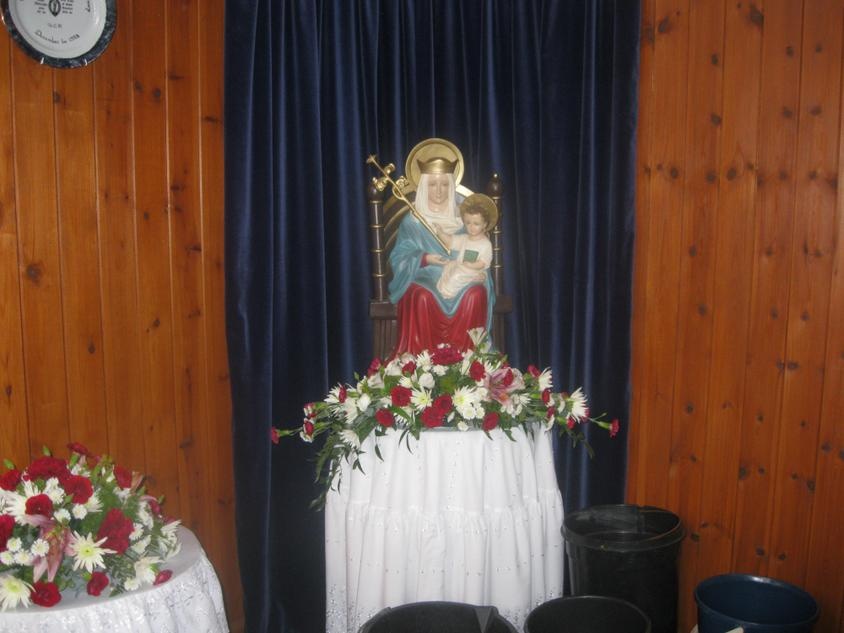RE
Welcome to Religious Education
Miss Harrison is the school’s subject leader.
We recognise each saint is a “holy one,” someone who is set apart for God’s special purposes. As a result, every follower of Jesus Christ can be a saint. By following the examples of the saints as a school community, we too can emulate the virtuous behaviours of the saints.
Intent
We believe that through carefully planned, taught and assessed Religious Education, our children will develop the ability to be spiritually literate and to be a ‘witness of the Gospel wherever they find themselves by the way they live’. (Pope Francis).
Through well-informed and creative teaching, our children will acquire a deep understanding of the Christian faith; its history, teachings, impact, traditions and continuing relevance throughout our world. As a Christian family, parents, school and parish have an important role to play in the faith and spiritual development of our children. We aim to provide an environment that enables all members of our school family to grow in their relationship with God through Jesus. As part of our wider Christian family, we draw on support from our clergy and both Dioceses where we can. We want all our children:
- To know that they are a loved, unique child of God
- To know and value the work of the saints as inspirational models of the Christian faith
- To know that through living the Gospel values and following in Jesus’ footsteps, our beliefs will inform our actions and impact positively upon others
- To know the value of prayer
- To be a champion of justice for all
- To be mindful and pro-active stewards of God’s world
- To use, celebrate and give thanks for the unique talents of ourselves and others
- To be confident in expressing our views on faith
- To be able to explore, take initiative, ask questions, investigate and evaluate ideas to work constructively with others
We aim to provide a rich and broad RE curriculum which will nurture and inspire our children’s curiosity. They will be encouraged to make connections between knowledge and skills learnt in other subject areas; cross-curricular planning will actively seek to explore links wherever possible between our CUSP curriculum and spiritual and ethical issues. Through classroom, whole school and out-of-school experiences in RE, our children will develop their ability to learn, question, investigate, analyse and articulate the teachings, beliefs, values and way of life as Christians. Our children will understand the importance of reflection and prayer, and will take part in both individual and collective worship throughout their time at All Saints. RE within the school will be accessible and relevant to all ages, abilities and characteristics, and in turn our children will understand and demonstrate inclusivity towards others, in accordance with the Church’s teachings.
Implementation
Planning and Delivery
RE plans are based on the Religious Education Directory (EYFS – Year Three) and from Autumn 2024 all year groups. The Way the Truth the Life is currently used in Years Four-Six. General termly themes are outlined, often in line with the liturgical year, but specific lesson content is planned by class teachers and overseen by the RE Lead. RE lessons account for 10% of teaching hours, with daily Collective Worship being additional to this allocation. Class teachers deliver the majority of lessons, with clergy and occasional visitors contributing and enhancing lessons at points within each term.
Approach
Please refer to our RE curriculum plan. As in other subjects, wherever possible, the RE curriculum aims to make strong and meaningful links with themes or concepts within RE itself, or between RE and other subjects – for example, Geography and History. Learning is consolidated by providing regular opportunities for retrieval practise – much of this will be verbal and will inform assessment.
Progression
As children move up through the school, they revisit knowledge, skills and concepts previously taught, and build upon this prior knowledge with new learning objectives. Children continue to develop subject-specific vocabulary, enabling them to express increasingly well-balanced opinions rooted in sound knowledge.
Challenge
Probing questions, following on from active listening, offer up opportunities for challenge within RE; as does asking children to justify their thinking and to find evidence (from the Bible and other sources) to evidence their opinions. Teachers use children’s individual starting points to provide challenge activities and learning.
Enrichment
RE is enriched through cross-curricular links, through faith-based art, music and drama opportunities; through visits and visitors, including clergy. Pupils also contribute to the wider community by sharing events held by the Dioceses.
Impact
Measuring Impact
We measure the impact of RE on children’s learning through the day-to-day treatment of each other. Living out our school values and mission. We measure it through assessment tools such as rubrics and low-stakes quizzes: this evidence of children’s learning enables teachers to close the gaps in pupil’s knowledge or skills, by amending planning or revisiting or interleaving knowledge, or through adaptive teaching and/or flexible groupings. There are annual summative judgements, handed up to the next class teacher and recorded by the RE Lead for monitoring and reporting purposes. The RE Lead takes responsibility for ensuring coverage, progression and standards through long and medium-term planning, promoting the subject and developing the teaching methodology and securing high quality resources. They regularly monitor and evaluate learning, teaching and the curriculum.
Outcome Aims
We aim that all pupils leave All Saints with a thorough understanding of the life of Christ, a strong knowledge of a wide range of Bible stories, an awareness of how Gospel values can impact our lives, the traditions of prayer and collective worship and the saints that have helped shaped our religious history. We aim that all pupils are able to speak positively and knowledgably about their own faith journey and to express their own questions confidently. We aim that all children make excellent progress in their knowledge and understanding of RE and that any misunderstandings or gaps are pro-actively identified by teachers and subsequently planned for. We aim for our children to feel loved, valued and confident as themselves as members of our school family and as such, going out into the world as agents of change; giving service, being thankful and showing understanding to all those they meet.
Pupil Voice: Why we love RE at All Saints inter church Academy!
I love listening to all the stories about Jesus. (Year One pupil)
I'm really proud of diary entries which I have written as a character from the Bible. (Year Six pupil)
I love acting out stories which we have read - I like sharing them with the rest of the school in assembly. (Year Six pupil)
I loved learning about how important it is to be a steward of the world and how I can be an agent of change. (Year Five pupil)
God trusts us to look after his beautiful world! (Year Four pupil)
I love to picture the parables in my head. (Year Three pupil)
I like the RE trips - I loved our Easter pilgrimage to Walsingham this year! (Year Four Pupil)
I like it when Mrs Pritchard reads us Bible stories in the chapel. (Reception pupil)
I liked it when Rev'd Andrew came in to talk to us about the Eucharist. (Year Two pupil)
I love it when visitors compliment me on the care I give to the work in my RE book. (Year Six pupil)
